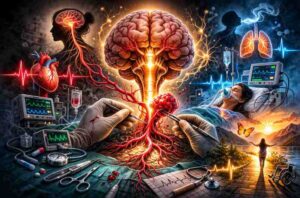Grey matter is the tissue in the brain containing cells that forms the cerebral cortex. Myth has it that this crucial entity has been temptingly tweaked by the big guy in the sky to make the Parsis an irresistibly insane lot.
Science believes that it is with this grey matter that we are able to think, analyse, and rationalise. (We, the Parsis, believe it is used to laugh, curse and dramatise). The ‘science’ of medicine comes from this very grey matter. The ‘practice’ of medicine is quite another matter.



